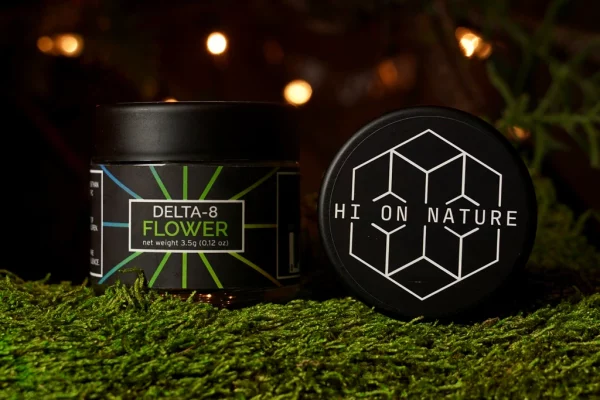Can You Fly With CBD? 2024 Weed Travel Guide
YES, you are permitted to bring CBD while traveling if your journey is within or between regions where it is legally allowed. The CBD product should have a THC content of less than 0.3 percent.
An in-depth comparison of THCO and Delta 8 THC, exploring their effects, legality, availability, and potential benefits.
Cannabinoids continue to captivate the cannabis industry, with THCO and Delta 8 THC gaining recognition. In this article, we will conduct an in-depth comparison of THCO vs Delta 8, exploring their effects, legality, availability, and potential benefits.
Also Read: Best Delta 8 Flower for a Soothing Experience Explore now!
THCO, or Tetrahydrocannabiorcol, is a relatively new cannabinoid that has emerged in the market. It is derived from the cannabis plant and shares similarities with other THC compounds like Delta 8 and Delta 9 THC. However, THCO has a unique molecular structure, resulting in potentially distinct effects.
Delta 8 THC, a naturally occurring cannabinoid found in cannabis plants, has gained significant popularity in recent years. It shares a similar chemical structure with Delta 9 THC but with a slight difference in the placement of a double bond. Delta 8 THC offers a milder psychoactive experience compared to Delta 9 THC.
Also Read: Is Delta 8 Legal in Florida? Know the Truth! Explore now!
THCO (Tetrahydrocannabinol-O-acetate) and Delta 8 (Delta-8-tetrahydrocannabinol) are two cannabinoids that share similarities in their chemical structures but may differ in their effects on the human body.
Both THCO and Delta 8 can interact with the endocannabinoid system in the body, influencing various physiological functions. However, it is essential to note that the effects of these cannabinoids can vary from person to person, and further research is needed to fully understand their long-term impact on health and well-being.
Also Read: Delta 9 vs. Weed: Navigating the Differences, Potency, and Legality Explore now!
As with any cannabis-related products, it’s crucial for individuals to be informed about local laws, potential risks, and personal health considerations before using THCO or Delta 8 products. Consulting with a healthcare professional or knowledgeable expert is advisable for those interested in exploring these cannabinoids safely and responsibly.
The legal status of THCO and Delta 8 THC varies and depends on local regulations. Delta 8 THC has gained popularity due to its legal status in many states where Delta 9 THC remains prohibited. However, it is important to note that the legal landscape surrounding Delta 8 THC is evolving, and regulations may differ from one jurisdiction to another. THCO’s legality may also be subject to local regulations, and it is essential to stay informed about the specific laws in your area.
List Of Cities where Delta 8 and THC are legal
Delta 8 THC products, including edibles, tinctures, and vape cartridges, have become increasingly accessible through both online and physical stores. However, due to its recent emergence, THCO products may have limited availability compared to Delta 8 THC. As the market continues to develop and demand grows, the availability of THCO products is expected to increase.
Some Popular Delta 8 Products are available to buy online:
Research on THCO’s potential benefits is still in its early stages, and more studies are needed to fully understand its therapeutic properties. Delta 8 THC, on the other hand, has shown potential in various areas. Some users report that Delta 8 THC provides pain relief, anxiety reduction, and appetite stimulation. However, it is essential to note that individual experiences may vary, and further research is required to confirm these potential benefits.
THCO and Delta 8 THC have distinct chemical structures. THCO is a unique cannabinoid with a combination of a cyclohexane ring and an aromatic ring. This structural difference may contribute to its potentially different effects compared to Delta 8 THC, which has a simpler molecular structure.
THCO (Tetrahydrocannabinol-O-acetate) and Delta 8 (Delta-8-tetrahydrocannabinol) are two lesser-known cannabinoids that have been gaining attention in the cannabis community. Research and knowledge surrounding these compounds are still limited compared to their more famous counterpart, Delta 9 THC, which is the primary psychoactive compound in cannabis.
THCO is a synthetic cannabinoid that is believed to have similar effects to Delta 9 THC but is reported to be more potent. However, due to its synthetic nature, concerns about safety and potential side effects persist, warranting further investigation. On the other hand, Delta 8 is a naturally occurring cannabinoid that can be extracted from hemp. It is said to offer a milder psychoactive experience than Delta 9 THC, making it appealing to some users seeking a more controlled high.
As these compounds gain popularity, it’s crucial to approach them with caution, given the limited scientific understanding and potential legal complexities. Users and researchers alike should stay informed about the latest findings and regulations to make informed decisions regarding THCO and Delta 8. As with any cannabinoids, responsible usage and further research are essential to fully comprehend their effects and potential benefits.
Delta 8 THC has gained popularity among cannabis enthusiasts due to its reported effects, which include relaxation, euphoria, and increased sociability. Users often describe Delta 8 THC as providing a balanced experience between the more intense high associated with Delta 9 THC and the milder effects of CBD. As THCO is a relatively new cannabinoid, there is limited consumer feedback available regarding its specific effects and experiences.
While Delta 8 THC has gained legal status in several states, it has also faced regulatory scrutiny in some jurisdictions due to its psychoactive nature. Some states have implemented specific regulations or restrictions regarding the sale and distribution of Delta 8 THC products. THCO, being a newer compound, may also encounter similar regulatory scrutiny as its popularity grows.
The potential side effects of THCO and Delta 8 THC are still being studied. Delta 8 THC is generally considered to have milder side effects compared to Delta 9 THC, but individual responses may vary. Common side effects reported with Delta 8 THC use include dry mouth, red eyes, increased heart rate, and sedation. As for THCO, due to limited research, specific information on its potential side effects is currently lacking.
In summary, THCO and Delta 8 THC are distinct cannabinoids with unique characteristics. Delta 8 THC has a more established presence in the market, supported by research and consumer experiences, while THCO is a newer compound with limited information available. It is important to consider factors such as chemical structure, research availability, consumer experiences, regulatory scrutiny, and potential side effects when comparing THCO and Delta 8 THC. Consulting with healthcare professionals and staying informed about local regulations are crucial when considering the use of these cannabinoids.
Share On :
YES, you are permitted to bring CBD while traveling if your journey is within or between regions where it is legally allowed. The CBD product should have a THC content of less than 0.3 percent.

California, the land of opportunity, sunshine, and… Delta-8 THC? While the Golden State embraces many alternative experiences, the legal status of this hemp-derived cannabinoid can be puzzling. So, can you legally enjoy Delta-8 in California

Are you curious about Delta 8 flowers and want to find the best one? Look no further! In this guide, we’ll delve into everything you need to know about the Delta 8 flower, including its
Join our mailing list to receive exclusive promotions and stay updated with the latest information on Delta 8 and HHC. Sign up now!
